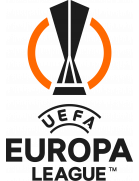So for this post we'll focus on the scenario where Barcelona and other Catalan clubs can no longer play in the Spanish system and UEFA blocks a move to France. Catalonia becomes UEFA's 56th member state and a newly formed Catalan league kicks off.
This season there are three Catalan based clubs in La Liga namely Barcelona, Espanyol and Girona. In this scenario all three are invited to form the Catalan league. In the Segunda there are two more clubs in Reus Deportiu and Gimnástic Tarragona alongside Barcelona's B team but for the interest of first team clubs we'll add these two to the league.
Going down to the third tier we have seven more clubs eligible for the new league, these are Badalona, Cornellá, Llagostera, Lleida Esportiu, Olot, Peralada and Sabadell.
So this leaves a nice round figure of twelve teams which is enough for the top tier. The second tier is easily formed by just taking the entire group five of the Spanish Tercera división which in consisted entirely of Catalan teams leaving a total of eighteen eligible sides if the B teams of Espanyol and Reus Deportiu are taken out of contention.
Below the Tercera Divisón in Spain are the regional leagues which make up the fifth tier. Catalonia has two groups at this level and a further one in the 6th tier. All competing sides here would be eligible to form the lower leagues of this new Catalan league system in their current league formats.
So this is visually what I have formed in this scenario.
Problems:
One quick glance at this Catalan system does show a glaring problem such a league will face, competitiveness. Barcelona would be by far and away the biggest club in the league. Only Espanyol could realistically have a chance of competing with the Blaugrana. However what will happen in this scenario is that Barcelona and Espanyol would lose a lot of their current players as the Catalan system will simply not generate enough money for them to hold onto the players. This in theory would reign Barcelona and Espanyol in from their fellow Catalan opponents.
Competitiveness will be this league's main issue as in the mock twelve team league some of the clubs are struggling in the third tier of Spanish football currently.
We then come to the issue of European places. As there would be no Catalan league in place prior to Catalonia getting independence in this scenario it might be that Barcelona will miss out on one European season. The reason for this is that they won't be allowed to represent Spain in the champions league and thus miss out on European football for one season until they have qualified through this Catalan system.
As with Kosovo, Gibraltar and Montenegro in the last decade any new nation in UEFA will start at 0.000 in the co-efficient table. This means that Barcelona would be starting in the first qualifying round of the champions league under the Catalan flag and not the group stage as they do under the Spanish. The twist here for Barcelona is that as a result of the changes to the access list to UEFA competition from next season such a scenario will see Barcelona having to progress six rounds just to make the group stage of the champions league.
Barcelona as well as Espanyol will likely decrease in stature. It is highly unlikely Barcelona will maintain their standing in European and world football by playingdomestically in Catalonia. As mentioned a lot of players will leave thus weakening the playing squad.
Positives:
One big positive for this system is for clubs lower down in the current Spanish system. By playing in this Catalan league system they will have renewed and realistic hopes of actually playing European football through the league itself or the Catalan cup. Clubs such as Girona and Reus Deportiu will likely be contenders for Europa league spots in this system.
Impact outside Catalonia:
Of course it won't just be Barcelona that will see a massive impact of this scenario. La Liga itself will lose its second most successful club while also seeing a total of three sides leaving the division. It's likely this will be fixed through either forgoing relegation for one season and promoting three clubs or La Liga going to a smaller league format of perhaps eighteen clubs.
On the European front Barcelona will not be the force they are under the Spanish system. This will impact the latter rounds of European football with one major player out of the equation, which will give renewed hope to some of the middle teams in Europe to replace them.
The Spanish national team will be weakened by the emergence of an independent Catalonia. Players such as Piqué, Fábregas, Jordi Alba and Sergio Busquets will become mainstays in the Catalan national team leaving Spain to find replacements.
Probably the biggest impact of this would be the precedence that it would set. Potentially a similar situation may arise in the Basque Country or Galicia which will impact Spain even more. All in all though it may be a while off yet but certainly this scenario would be a game changer in many ways.








